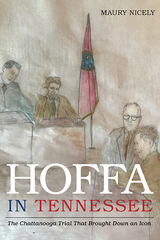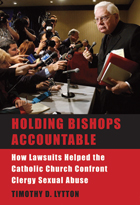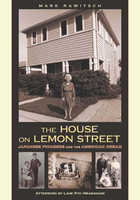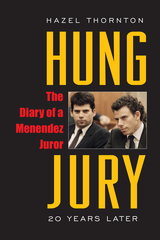4 start with H start with H

By the early 1960s, Jimmy Hoffa had a stranglehold on the presidency of the Teamsters Union. However, his nemesis, Attorney General Robert F. Kennedy, was convinced that Hoffa was a corrupt force whose heavy-handed influence over the union threatened the nation. As Attorney General, Kennedy established a “Get Hoffa Squad” that set out to unearth criminal wrongdoing by the labor leader in order to remove him from power. A number of criminal trials in the 1950s and early 1960s resulted in not-guilty verdicts for Hoffa. Matters would finally come to head in Chattanooga, Tennessee, in a climatic, but often overlooked, historical moment chronicled by Maury Nicely in this engrossing book.
After a Christmastime 1962 acquittal in Nashville of charges that Hoffa had illegally received funds from a trucking company in exchange for settling a costly strike, it was discovered that several attempts had been made to bribe jurors. Fresh charges of jury tampering in that case were quickly filed against Hoffa and five others. Moved to Chattanooga, the new trial was held before a young, relatively untested federal judge named Frank Wilson. The six-week courtroom conflict would devolve into a virtual slugfest in which the defense team felt was necessary to turn its ire against Wilson, hoping to provoke an error and cause a mistrial. As Nicely shows in vivid detail, Hoffa’s Chattanooga trial became the story of a lone, embattled judge struggling mightily to control a legal proceeding that teetered on the edge of bedlam, threatening to spin out of control. In the end, Hoffa was convicted-an extraordinary change of fortune that presaged his downfall and mysterious disappearance a decade later.
In examining how justice prevailed in the face of a battering assault on the judicial system, Hoffa in Tennessee demonstrates how a Chattanooga courtroom became a crucial tipping point in Jimmy Hoffa’s career, the beginning of the end for a man long perceived as indomitable.

The sexual abuse of children by Catholic clergy is arguably the most acute crisis Catholicism has faced since the Reformation. The prevalence of clergy sexual abuse and its shocking cover-up by church officials have obscured the largely untold story of the tort system’s remarkable success in bringing the scandal to light, focusing attention on the need for institutional reform, and spurring church leaders and public officials into action.
Stories of the tort system as an engine of social justice are rare. Holding Bishops Accountable tells one such story by revealing how pleadings, discovery documents, and depositions fueled media coverage of the scandal. Timothy Lytton shows how the litigation strategy of plaintiffs’ lawyers gave rise to a widespread belief that the real problem was not the actions of individual priests but rather the church’s massive institutional failure. The book documents how church and government policymakers responded to the problem of clergy sexual abuse only under the pressure of private lawsuits.
As Lytton deftly demonstrates, the lessons of clergy sexual abuse litigation give us reason to reconsider the case for tort reform and to look more closely at how tort litigation can enhance the performance of public and private policymaking institutions.

Bringing this little-known story to light, The House on Lemon Street details the Haradas' decision to fight for the American dream. Chronicling their experiences from their immigration to the United States through their legal battle over their home, their incarceration during World War II, and their lives after the war, this book tells the story of the family's participation in the struggle for human and civil rights, social justice, property and legal rights, and fair treatment of immigrants in the United States.
The Harada family's quest for acceptance illuminates the deep underpinnings of anti-Asian animus, which set the stage for Executive Order 9066, and recognizes fundamental elements of our nation's anti-immigrant history that continue to shape the American story. It will be worthwhile for anyone interested in the Japanese American experience in the twentieth century, immigration history, public history, and law.
This publication was made possible with the support of Naomi, Kathleen, Ken, and Paul Harada, who donated funds in memory of their father, Harold Shigetaka Harada, honoring his quest for justice and civil rights. Additional support for this publication was also provided, in part, by UCLA's Aratani Endowed Chair as well as Wallace T. Kido, Joel B. Klein, Elizabeth A. Uno, and Rosalind K. Uno.

More than two decades after serving as a juror on the high-profile seven-month murder trial People v. Erik Galen Menendez, Hazel Thornton updates her book Hung Jury with a new preface and a postscript essay of observations about the Menendez brothers’ second trial. Includes psychological commentary by Lawrence S. Wrightsman and Amy J. Posey, and legal commentary by Alan Scheflin.
READERS
Browse our collection.
PUBLISHERS
See BiblioVault's publisher services.
STUDENT SERVICES
Files for college accessibility offices.
UChicago Accessibility Resources
home | accessibility | search | about | contact us
BiblioVault ® 2001 - 2024
The University of Chicago Press









